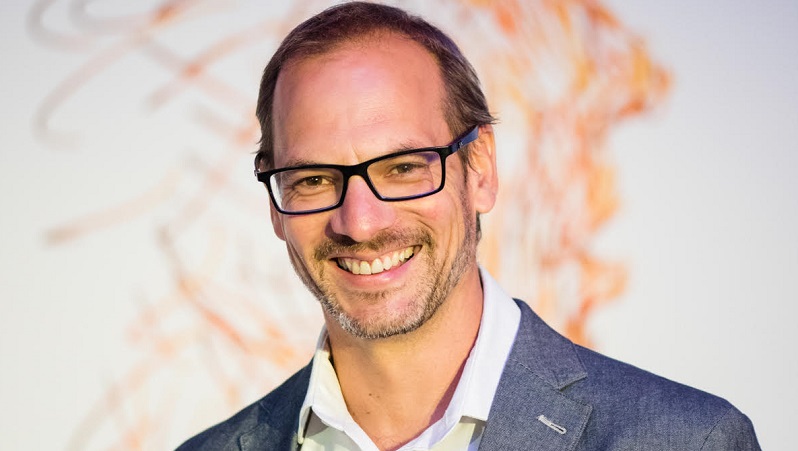We all have them. Those apps we open without thinking. Not because we need anything in particular, but because they feel… safe, in some…
How one VC has got around the challenge of doing due diligence during Covid-19 [Q&A]

Venture capital is, like any venture capitalist can tell you, an art more than a science. When you’re putting so much money into a business you don’t really know, you better be sure about who’s leading that business.
Even after thorough due diligence venture capitalists can get it wrong.
Covid-19 and its accompanying lockdowns and social distancing has made an already challenging situation even more challenging.
But it’s not a lost game for investors, argues Knife Capital managing partner Keet van Zyl. There are still some smart ways venture capitalists can carry out due diligence work.
What we as venture capitalists find challenging in a due diligence, is to really get a handle on the culture of the business
In the following question and answer (Q&A) sessions conducted via Zoom, Van Zyl provides some insight into how venture capitalists can go about a due diligence in these trying times — and the importance that assessing a firm’s company culture has to play in picking which firm to invest in.
How do you do due diligence these days?
Look, a lot of due diligence from the technical side is done generally online on a data room repository, where you put all the information in a vault and take it from there.
But, a little bit has been taken out by the fact that you can’t actually have a proverbial coffee or wine and really talk through things and spar with one another and negotiate hard on these things face to face.
But at the same time there are other ways to do this. Right now we’re doing probably more intense reference checks, with background checks on the entrepreneur by phoning those in your trust circle that you know they’ve worked with, maybe a little bit more than before.
But on the other hand people adapt. We had a very interesting tour of a business that showed us their offices via Zoom or one of those and we had an interview with the managing team there and then they went out into the field where some of their agents were and we could kind of interview them.
It was actually a much better put together pitch because of the fact that they really utilised online tools to give us a sense of this business.
How do you get a good sense of someone you’re going to invest in?
You know where we find it a little bit challenging, is to really get a handle on the culture of the business.
For us it’s really important to get a holistic understanding of the business culture. And the way we typically do it, is by arriving early for meetings or by sitting in the business’s office to do the bulk of the due diligence.
You know, we go to the business’s offices and we see how they treat middle management, and if people come into the business together, does everyone have a coffee together, or does everyone run upstairs into their proverbial cubicles.
You know, Knife Capital has a very scientific metric called the “Speed of climbing stairs” index and that is how we measure company culture.
So, each of our companies has a speed of climbing index. And the theory behind that is that the proverbial staircase in a business, how quickly do entrepreneurs run up the stairs and what’s happening in that office. And you can’t really get a sense for the speed of climbing stairs index if you don’t actually go climb the stairs.
Then what do you do (during Covid-19)? Go speak to all the people that know them, or what?
We broaden our scope to not only act with the founder and co-founder and the CTO and CFO. We do within our transactions, create reason to speak to people also in middle management, just to sort of interact.
You might phone the receptionist or the PA to actually set up the meeting for next Friday and have a little chat.
Right, so you really have to tap the culture there?
No, you do. I often jokingly, or no so much, say that to become a venture capitalist, which was an interesting career path to get to, but I studied accounting, MBA, intellectual property law and I should have studied psychology and drama. Then I would have been a better venture capitalist. The life sciences. Yes, the culture.
So, there aren’t scientific measures for us to get a measure on it, but I feel because venture capital is much more than capital, it is actually mentorship capital, it is long-term partnership, it is actually a people game and not a money game, you really have to think of how to get a sense of culture.
In some of our current portfolio companies we see it absolutely in action at the moment. You know we’re so proud of some of these entrepreneurs. You can see that the culture is holding it together. People are taking salary cuts, they’re all there and basically it’s not a big issue where people are walking out.
You know when things are good it needs to be good for everyone. When things are challenging, then everyone in the organisation needs to come through.
So it’s difficult to get a handle of it (the culture) and that’s one of the things that’s been impacted by Covid-19.
Editor’s note (2 June 2020): We’ve amended the headline slightly to reflect that the VC was getting around the challenge of carrying out due diligence during this current period, and not getting away from conducting the actual due diligence.
Featured image: Knife Capital managing partner Keet van Zyl (Supplied)

